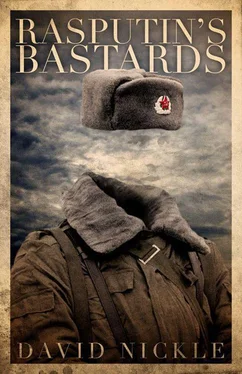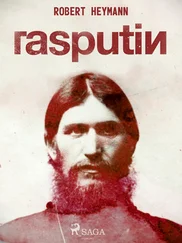Although he didn’t let on to his team members, Abelson had seen more than a picture of Emilio Torres. The two had known one another years ago, at school in Southern California. They’d been good friends — shared beer and crib notes and even, for one intense month, a girlfriend named Sue Denson, who’d eventually left them both for a kid in pre-med. These days, the “kid” ran a successful private practice in San Francisco — which helped him keep up with the staggeringly high alimony payments that Sue won in their divorce.
Abelson kept track of his ex and her ex’s fortunes out of a vaguely malicious curiosity. He kept track of Torres’ comings-and-goings in the course of his job. Torres had been working in deep cover in Havana for the past eleven years — working as a cleaner at the house of Pyotr Oprinchuk, one of Castro’s foreign policy advisors from the Kremlin. He had been reporting for several months now on the movement of ships and submarines from Havana Bay, to a point in the mid-Atlantic — all having to do with something called Petroska Station. He’d also managed to photograph a group of very high-level Russians, who visited Oprinchuk for dinner a week ago. Among them: Vasili Mishin — who’d taken the fall for the failure of the Soviet lunar program — and General Karim Karimov, who was also engaged in the cosmonaut program. Were they building a launch facility in Cuba then? The Russian plans for Petroska Station were a most tantalizing mystery.
But it would be someone else’s mystery to solve. Torres had been compromised. One of Oprinchuk’s maids had begun to suspect, and two nights ago let on to Torres that if he didn’t come up with some money, she’d spill it all.
After disposing of her body, Torres had made a fast radio transmission, headed for a cove at the north end of the island where he kept a boat, and from there, debarked for a rescue rendezvous.
What he hadn’t figured, of course, was that the maid wasn’t just a maid; she was part of a KGB counter-intelligence team on a spy hunt — making sure the top secret Petroska Project stayed secret. She was only fishing when she approached Torres.
With her murder, Torres gave himself away. The KGB team intercepted his transmission, and shortly thereafter, intercepted him, on his way to the boat. Torres was now on his way to an interrogation camp in Russia. And one Jorge Alvarez, a KGB recruit from Havana who bore a passing good resemblance to Torres, was on his way to the rendezvous to try and find out how much the Americans knew.
The motor launch was in sight now — the whine of its engine on the edge of audibility.
“Fred,” said Abelson quietly, “start the motors. Torres is coming in.”
Fred nodded and climbed up to the bridge. Ruth slipped below decks. Abelson lifted a pair of binoculars to his eyes, and focused them on the launch.
“He’s put on weight,” said Abelson as Ruth handed him the rifle. He set down the binoculars, lifted the gun to his shoulders, and peered through the scope. He drew it slow across the horizon, until it lit on the prow of the boat. From there, he pulled it up and onto Jorge’s worried face.
“Oh no,” said Alexei aloud.
“What is it?” said the woman behind the wall. “Say what you see, boy.”
Alexei ignored the question. He’d misapprehended the situation! Abelson was there as part of a hit squad — not to pull in an agent. Jorge was a second away from death.
He had to act quickly!
Frantically, he pulled out of Abelson’s sphere, out of his mind. He had to get to Jorge — to warn him. With all his energy, Alexei flew across the water — fast as a bullet would travel, maybe even a little faster — to warn the unsuspecting agent that things were not as they seemed…
That he should duck.
“Duck!” screamed Alexei, as he set a metaphorical foot into the doomed man’s mind.
He was doomed. Because as fast as Alexei travelled, he only arrived a scant two seconds in advance of the bullet bound for the middle of Jorge’s skull. That was enough time to speak the warning — for Jorge to start at the thought, wonder where it came from — for Alexei to apprehend the texture of a life (childhood in Havana, spent helping his mama clean toilets in a hotel owned by a Miami-based mobster known to him only as Brother Jules; a revelation like a touch from God, when he met the lean, handsome Che Guevara for the first time and swore himself to the Revolution; and years, moving into decades, spent in service of that Revolution, filled with loves and slights, triumphs and humiliations).
And then, a bullet — which tore through Jorge and Alexei and the universe all at once and forever.
But it only seemed forever. Alexei blinked awake, bullet-free and alive, in Bed 4 at City 512’s infirmary. Unlike the examination room, which had small, frosted glass windows near the ceiling, the infirmary was completely subterranean. The only light came from wire-caged lamps set into the painted cinderblock walls. There were a dozen of these, two lights for each bed, with additional lamps on long goose-necks attached to the headboards.
“Sorry, Kilodovich. You failed.”
Alexei didn’t recognize the voice or the man who was using it at the foot of his bed. He had black hair, a long thick beard and two thick eyebrows, conjoined into one. He wore an expensive-looking leather coat, and his hands rested in its pockets.
“What do you mean?”
“Failed. You messed up. Got the signals wrong. Took the wrong course of action. You’re out of the program. Do you understand what I mean now?”
Whoever this guy was, he was pissing Alexei off. He’d never seen him before, never even heard his voice through the intercom during a test. And here he was, delivering the news that Alexei had failed.
“I don’t believe you,” said Alexei. “This is still a part of the test. Where are the others?”
“They don’t care about you any more. Like I said — you’re out of the program. Finished. You got no talent as far as they’re concerned. They’ve already wasted enough of the People’s valuable time and resources on you.”
“May I ask,” said Alexei, “what caused me to fail?”
The bearded guy nodded, as though something had just been confirmed in Alexei’s question.
“You fabricated,” he said. “You sensed energies. But they were random, meaningless energies — and you used your mind and imagination to transform them into a narrative. A few simple suggestions from the box, and there you are — floating over the waters off the coast of Florida, imagining something out of a James Bond novel in your head.”
Alexei looked more closely at this man: the cast of his brow, the way his chin bent beneath its beard. He was younger — in better shape — but…
“Fyodor Kolyokov,” Alexei murmured.
“You know my name.” The man frowned. “That’s not talent,” he said. “You’ve been snooping. Trying to trick me into giving you a second chance. That’s not a wise course.”
Alexei shook his head, as though clearing hangover cobwebs. He blinked up at Kolyokov — the real Kolyokov; not the one he remembered, teaching him spy tricks from the classroom. And not the strange ghost that had accosted him in the schoolyard.
The real Kolyokov. The bastard.
“You were never my teacher,” he said. “Were you now? You took me from the program here, after they’d written me off. And instead, you put me in—”
Alexei snapped his fingers — the words wouldn’t quite come. Lies and certainties shifted and melded as his understanding grew.
“There was never a spy school. Not the one I’m remembering. Spy school — school — was—” a tiny room, where lights flashed and food came infrequently and when it did come, was infused with narcotics; a place of needles and repetitions and ultimately, emptiness… a terrible emptiness, with the power to draw away the soul —
Читать дальше












